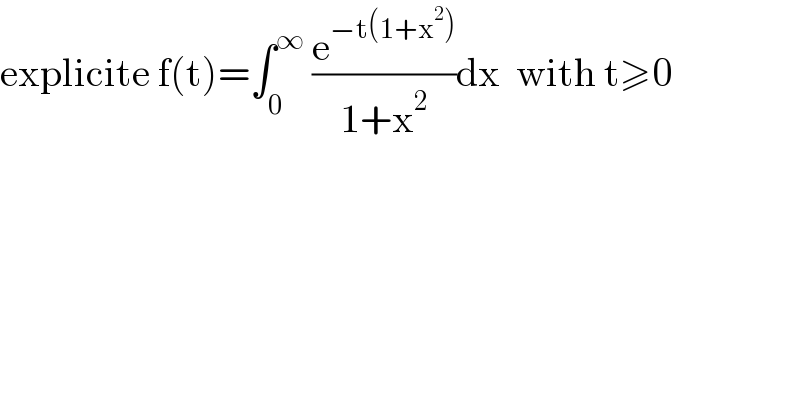Question Number 136033 by mathmax by abdo last updated on 18/Mar/21

$$\mathrm{explicite}\:\mathrm{f}\left(\mathrm{t}\right)=\int_{\mathrm{0}} ^{\infty} \:\frac{\mathrm{e}^{−\mathrm{t}\left(\mathrm{1}+\mathrm{x}^{\mathrm{2}} \right)} }{\mathrm{1}+\mathrm{x}^{\mathrm{2}} }\mathrm{dx}\:\:\mathrm{with}\:\mathrm{t}\geqslant\mathrm{0} \\ $$
